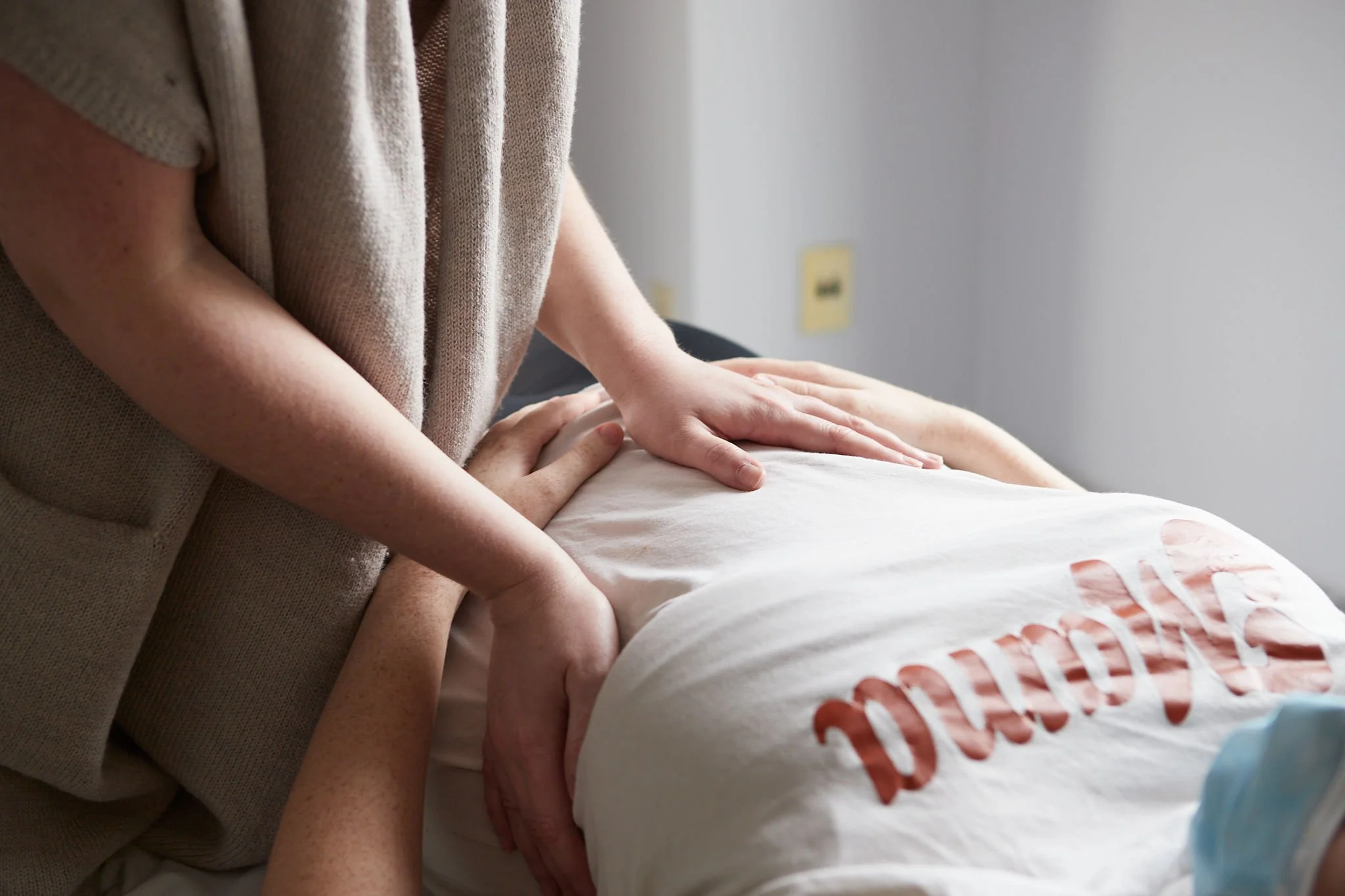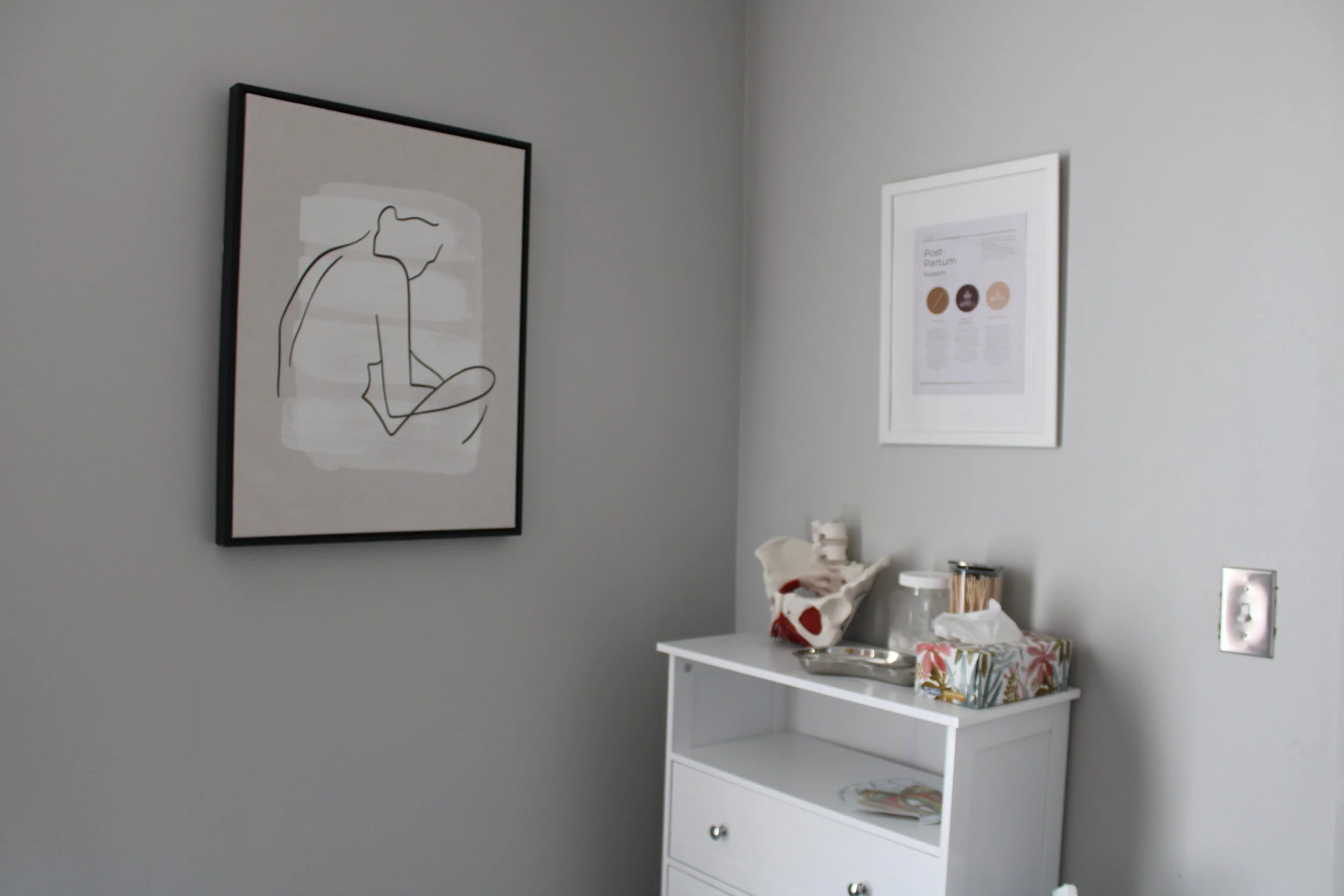PELVIC FLOOR PHYSIOTHERAPY IN OTTAWA
What is Pelvic Floor Physiotherapy?
Pelvic floor physiotherapy is a service that can help you strengthen your pelvic floor muscles, which are the muscles that support your pelvic organs and help you to control your bladder and bowel movements. It is designed to train the pelvic floor muscles how to contract and relax, while also taking into consideration any issues with bladder, bowel and/or sexual function that may be affecting quality of life.
There is a close connection between the pelvic floor, low back, and hips - understanding how your pelvic muscles are operating may be the key to unpacking the origin of some of your pain. Internal assessment and treatment assist in targeting specific muscles inside the pelvis, however, non-internal therapy can also be provided based on patient preference.
What To Expect From Pelvic Floor Physio?
Pelvic Floor Physiotherapy can be used to support a large variety of illnesses and conditions. At Femade, we are committed to treating chronic pain and symptoms in females, those who have transitioned, and those assigned female at birth through holistic modalities, including acupuncture.
We take the time to understand all elements of your pain, and your comfort level. It is crucial that we not rush you into an internal exam until/unless you are ready to pursue that level of physical examination.
The muscles of the pelvic floor are very important in maintaining core stability, proper breathing and posture, as well as the support of pelvic organs. Our pelvic floor physiotherapists take a broad approach, focusing not only on the pelvic floor muscles but the nerves that supply them and the organs that are located within the pelvis. A pelvic floor therapy session takes place 1:1 with your therapist and is 100% at your own pace and comfort level. Both of our physiotherapists are trauma-informed.
Concerns That Can Be Supported By Pelvic Floor Physiotherapy:
Prenatal & Pregnancy Care
During pregnancy, your body goes through many changes that can impact your mobility and quality of life. Pelvic floor physiotherapy can help with pain and mobility issues specific to pregnancy. Some common concerns include pregnancy-related pelvic girdle pain, urinary symptoms, bowel concerns, and hemorrhoids. During your pregnancy, staying active is generally recommended, but pain or mobility issues can make it difficult to continue physical activity. Your physiotherapist can provide exercise counselling for your pregnancy to support healthy activity for you and your baby. Most importantly, during your pelvic floor physiotherapy sessions, your therapist will help you to build awareness about the pelvic floor and help you to engage with it.
Postpartum Care
During pregnancy, the body experiences many physical changes that don’t always return to pre-pregnancy without support. Pelvic muscles experience high levels of strain during childbirth and pregnancy which can cause them to weaken. Postpartum pelvic floor issues are quite common, and pelvic floor therapy is an effective treatment option to help with incontinence, aid tissue repair, and help to clear pelvic congestion and pain.
Chronic Pelvic Pain
Chronic pelvic pain can occur for an array of reasons and often the culprit or contributing factor is a heightened state of contraction of your pelvic muscles. Pelvic floor physiotherapy is a type of treatment designed to train the pelvic floor muscles to contract and relax, in addition to taking into consideration any issues with bladder, bowel and/or sexual function that may be affecting quality of life. Understanding how the muscles in your pelvis and surrounding areas are operating is often key to understanding and addressing the root cause of pelvic pain.
Vulvodynia/Vestibulodynia
Vulvodynia, also known as vestibulodynia, is a type of chronic, unexplained pain experienced in the vagina that can cause day-to-day activities such as sitting for long periods, sex, or using feminine hygiene products to become painful. Pelvic floor physiotherapy is designed to train the pelvic floor muscles to contract and relax which can help to bring down the heightened state of muscle contraction often experienced with triggers of this condition.
Vaginismus
Vaginismus refers to an automatic reaction by the body to some or all types of vaginal penetration. This often leads to pain and discomfort when partaking in normal day-to-day activities such as sex or utilizing menstrual products. The reaction that causes vaginismus is caused by a fear response, and working with a professional can help to retrain the brain and body to reduce the automatic fear response and eventually the chronic pain associated with the response.
Dyspareunia (Painful Intercourse)
Dyspareunia is the medical term that refers to persistent pain before, during, or after intercourse. Dyspareunia can be caused by multiple conditions including vulvodynia, vaginismus, endometriosis, uterine fibroids, IBS, and much more. Pelvic floor therapy is one of many approaches to managing this type of pain (depending on its cause), and involves learning muscle relaxation techniques that will decrease pain.
Dysmenorrhea
Dysmenorrhea refers to painful menstrual cramping caused by uterine cramping. Dysmenorrhea can be classified as primary or secondary - the first being pain related to menstruation (starting before or after bleeding), and the second being a type of period pain related to another condition such as endometriosis. Pelvic floor therapy can help to relax the related muscles and increase range of motion & mobility.
Interstitial Cystitis/Bladder Pain Syndrome
Interstitial cystitis is a chronic bladder condition that often causes pain, pressure and discomfort in the bladder and pelvic region. Pelvic floor therapy is an effective, and often top choice, for treating interstitial cystitis. In fact, it’s estimated that up to 85% of individuals experiencing IC/BPS also have pelvic floor dysfunction. Treatment for interstitial cystitis/bladder pain syndrome is similar to other conditions and involves training the pelvic floor muscles to contract and relax.
Bladder/Bowel Dysfunction
Many people may not think of bladder or bowel dysfunction as being related to the pelvic floor or falling under the scope of a pelvic floor therapist. However, pelvic floor therapy involves training the pelvic floor muscles to contract and relax which has been shown to also support bladder and bowel function.
Genito-Urinary Syndrome of Menopause
Genito-urinary syndrome of menopause, also referred to as vulvovaginal atrophy, is a medical term for a host of symptoms caused by hormonal changes experienced in menopause. Individuals experiencing this syndrome may experience genital dryness, irritation, pain, and urinary symptoms. Generally, the positive experiences associated with pelvic floor therapy for this condition are related to blood flow improvement in the vulvo-vaginal region, and normalization and coordination of the pelvic floor muscles.
Ready To Get Started? Book Your Appointment Today
Having chronic pelvic pain or pelvic floor weaknesses can greatly impact quality of life and day-to-day functions. Working with a physiotherapist is a safe and effective way to support many types of conditions, and we are happy to offer pelvic floor physiotherapy services in Ottawa. To learn more about Madison, please see her bio. To learn more about Isabelle, please see her bio.
Not sure if this is the right tool for you? Our practitioners offer a complimentary discovery session to learn more.
To book, call us at 613-722-1674 or use the booking button below.
Pelvic Floor Physiotherapy FAQ
-
It is a specialty of physiotherapy so should be claimed under your physiotherapy benefits.
-
Absolutely - your pelvic floor physiotherapist is comfortable with either an external or internal exam during your menstruation, and can work with you depending on your comfort level at that moment.
-
There is nothing you need to do to prepare. Come as you are :)
-
After the first session your practitioner will speak to you about the balance - how often is good enough to get results but not too often to burn you out. It also factors in what you can afford - both time and financially - to come up with the best schedule that works for you.
-
For any of our services it is most beneficial for you to be comfortable. Please wear comfortable clothing.


